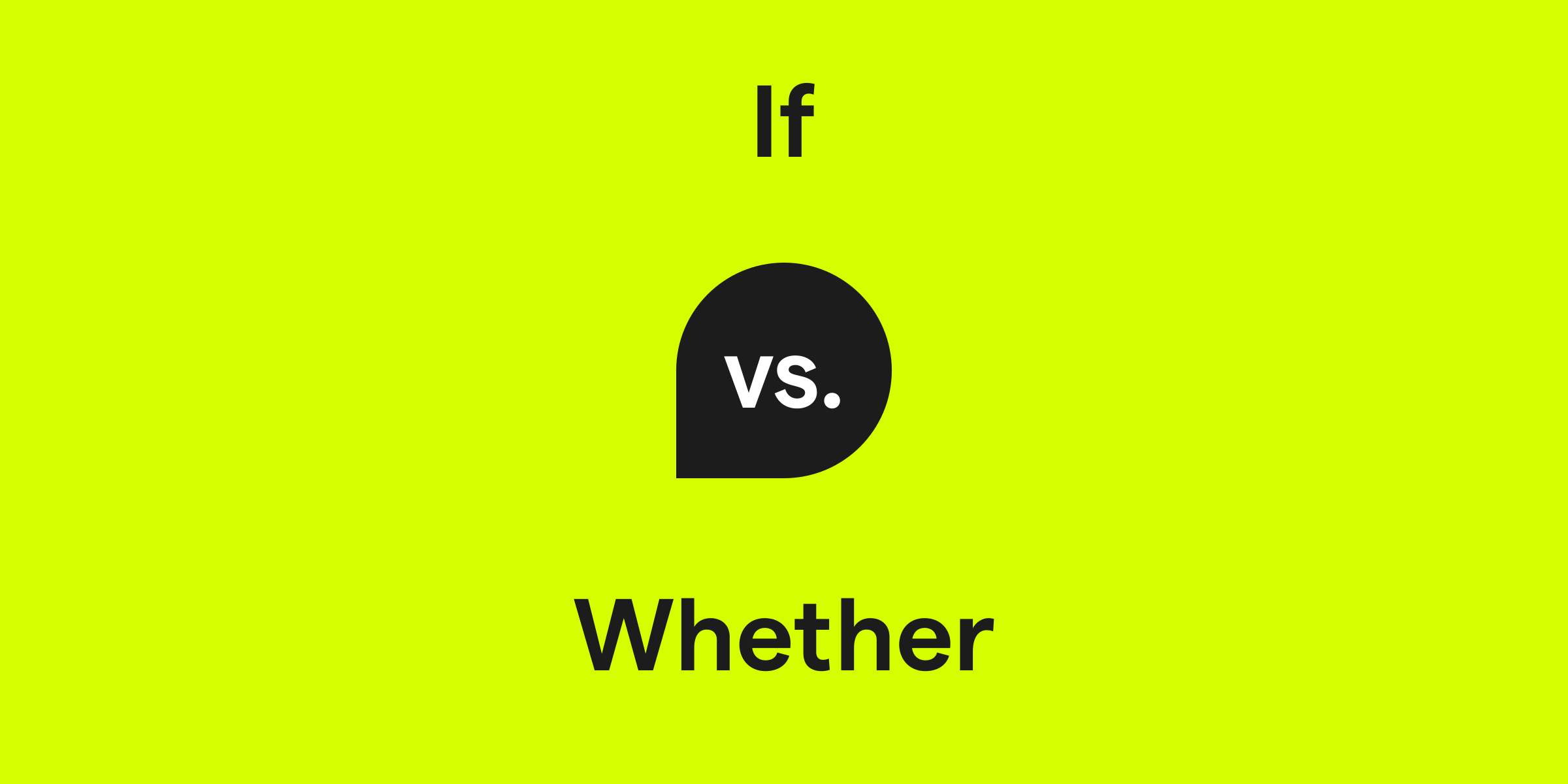If vs. Whether: What's the Difference?
The words if and whether are often interchangeable, but there are subtle differences in their use. If is used to express a conditional situation or a possibility that is reliant on something else. Conversely, whether is typically used to talk about a choice between alternatives and is preferred in formal writing when expressing two or more choices.

How do you use the word if in a sentence?
The word if introduces a condition that must be met for something else to happen. It sets up scenarios and hypotheses, often related to the future or to an uncertain present. When you want to speculate about an event that could depend on another, or to set a specific condition for an event to occur, use if.
Examples of if in a sentence
- Let me know if you're coming to the party.
- If it rains, the event will be canceled.
- I'm curious if she found her lost cat.
How do you use the word whether in a sentence?
The word whether is used to discuss alternatives or express a choice between different options. It signals that there are two or more possibilities, often with no condition attached to them. In formal writing, whether can also introduce indirect questions and is used before an infinitive verb to show that someone has a decision to make.
Examples of whether in a sentence
- He's unsure whether to stay or leave.
- I can't decide whether I want coffee or tea.
- Find out whether all the guests have arrived.
If and whether definitions, parts of speech, and pronunciation
If definition:
If is a conjunction used to introduce a conditional clause, indicating the possibility of something happening or being true, depending on another condition.
If parts of speech:
If pronunciation:
If is pronounced /ɪf/.
Whether definition:
Whether is a conjunction used to introduce an indirect question or to express a choice between alternatives.
Whether parts of speech:
Whether pronunciation:
Whether is pronounced /ˈhwɛðər/ or /ˈwɛðər/.
If is a conjunction used to introduce a conditional clause, indicating the possibility of something happening or being true, depending on another condition.
If parts of speech:
- If you save your money, you can buy a new computer.
If pronunciation:
If is pronounced /ɪf/.
Whether definition:
Whether is a conjunction used to introduce an indirect question or to express a choice between alternatives.
Whether parts of speech:
- She asked me whether I was ready to go.
Whether pronunciation:
Whether is pronounced /ˈhwɛðər/ or /ˈwɛðər/.
If vs. whether in a nutshell
While both if and whether are conjunctions used in conditional contexts, if is more common when a conditional clause is based on whether something happens. Whether is preferred in formal contexts and when discussing two or more alternatives. Remembering when to use each can add clarity and precision to your writing, ensuring your audience understands the choices and conditions being presented.
Get AI Writing Assistance Wherever You Type
Make sure your vocabulary is on point and every punctuation mark is in the right place, no matter where you’re working. Grammarly works across more than 1 million websites and apps so you can improve your writing without copying, pasting, or breaking focus.

More Commonly Confused Words
Interest piqued? Pore (not pour) over other commonly confused words to help your writing reach peak (not peek) performance.